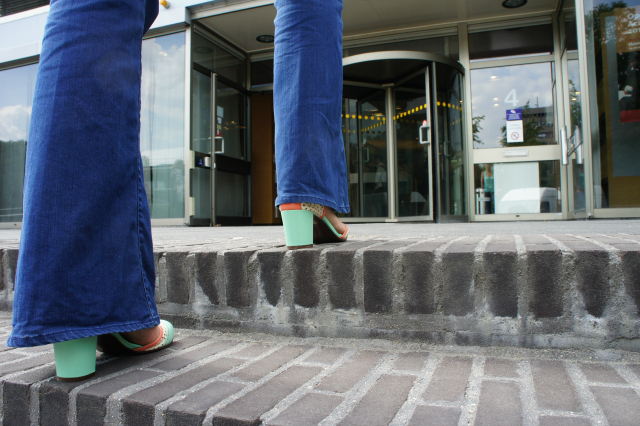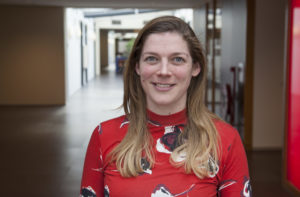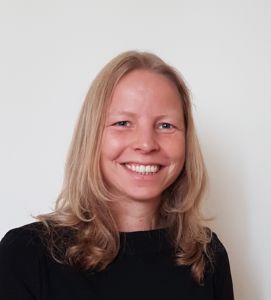‘Women need more encouragement’
-
 Foto: Mark Merks
Foto: Mark Merks
In comparison to their male colleagues, female scientists earn less and have fewer career perspectives. Wednesday sees this year's edition of the national ‘Pump Your Career’ talent day. What are the most urgent changes to be made according to women in Nijmegen?
Women scientists take longer to be promoted to professors and their salaries fall below those of their male colleagues. This lack of equality the Dutch Network of Women Professors (LNVH)’s motivation to organise a career day on Wednesday together with research funding body NWO (Netherlands Organisation for Scientific Research). Under the title Pump Your Career female researchers – ranging from PhD candidate to professors – can attend workshops and participate in discussions about, for example, negotiating, leadership, valorisation and misuse of power.
In Nijmegen diverse researchers are studying the position of women in science, and some of them are involved in the event. Imagine that they were the boss of the university. What aspect would they first want to deal with?
Angela Maas, professor of Cardiology and board member of the Network of Women Professors:
‘Are you really asking what I’d do if I were President of the Executive Board? I think it’s important for everyone to be aware of their prejudices. I’ve noticed that you have to keep talking about this since it otherwise starts to fade away. Diversity should be on the agenda of every university because a diverse population leads to more enriched thinking. This isn’t only about gender, but also about cultural background.’

‘Time and again we see that women need more encouragement. If a male expert says something, you accept that faster than when a woman says it, even if you yourself are a woman. And women often find it much more difficult to talk about salaries, whereas men have hardly any problem.’
‘So the position of women still needs attention. That was also reflected in the 2018 Women Professors Monitor, which the LNHV will present during Pump Your Career. The number of women professors is increasing, the figures show, but the share of female PhD candidates has decreased for the second year in a row. The influx is stagnating and that’s worrying.’
Channah Herschberg, PhD candidate at Nijmegen School of Management, recently published on the role of gender stereotypes in university application committees:
Channah Herschberg. Photo: Leonie Andriessen

‘As a PhD candidate I’m not really in the position to become the boss of the university, haha. But I can say something about my research for which I spoke with members of application committees for young researchers like an assistant professor. Committee members often tend to think in generalisations about men and women. Women are modest, not self-confident and less competitive. You set men and women against each other and don’t really look at the person who’s standing in front of you. Of course it’s not so black-and-white.’
‘What I think would help would be for application committees to extensively and critically discuss their selection criteria, such as ‘international experience’ or ‘being competitive’. Are those the criteria that we as a team really find necessary or do they come ‘from outside’ because you think that they’re general academic standards?’
‘If you explicitly define your selection criteria, you will create awareness. Then the unwritten criteria – the ones based on stereotypes or gut feelings – will have less of a chance, and you can discuss them. If someone starts in on a candidate’s international experience, you could say: hey, wait, that’s not one of the criteria that we decided on.’
Marijke Naezer, researcher in gender studies. During Pump Your Career she will chair a panel on scientific harassment, intimidation on the academic work floor.
‘Sexual intimidation, negative remarks about pregnancy, but also stealing data or ideas. These are all examples of scientific harassment that women in science experience. For the LNVH I’m analysing the experiences of about fifty women who have encountered this. I’m doing this together with Marieke van den Brink and Yvonne Benschop [fellow Radboud researchers, ed.].’

‘On the career day I’ll discuss a number of our first findings in a panel discussion. We’re going to see if people recognise this and how we can solve the existing problems. For example, it appears that it’s still very difficult for victims of harassment to address this problem. That has to improve, but university structures aren’t well suited to this. For example, confidential counsellors don’t have the power to dismiss someone, and professors have a sort of star status that protects them.’
‘Will the position of women ever improve? We will present our final report in March, and we hope that it will cause quite a stir. We really want to challenge the culture that makes misconduct possible. That has to change. Now it too often seems as if women have to change.’
Pump your Career will take place in the Beatrix Theatre in Utrecht on Wednesday 12 December. You can find the programme here.



